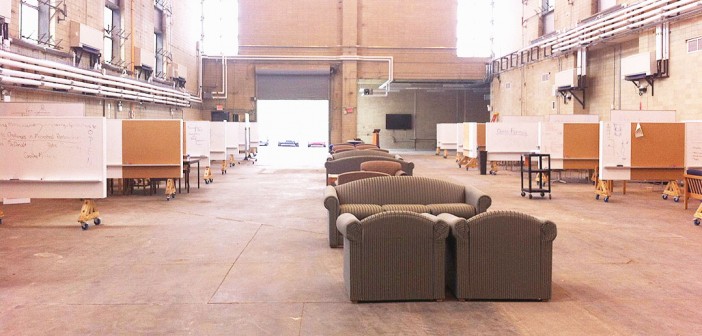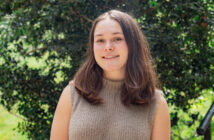This summer at Lehigh’s Mountaintop facility, a team of seven students developed a model home to research environmental and residence life enhancements to African housing.
Last spring break, six students and two professors traveled to Senegal to gather information to aid them in their goal to bring more sustainable living to the area. The group visited Dakar, Senegal’s capital, as well as a rural village.
Professor Brent Stringfellow, one of the project’s three mentors, felt that it was important to not only understand the technical side of the project, but also the underlying cultural and social contexts.
“Our mission in Senegal was to absorb as much as we could,” said Elizabeth Hayden, ’17, who traveled to Senegal and worked on the Mountaintop Project.
By observing the climate, the bugs, the lifestyle and the housing as well as conducting interviews with natives and local builders, the group was able to gain an understanding for the area’s culture and environment.
“I had no idea what to expect. I had never been to a culture so different from the U.S.,” Hayden said. “My favorite part was interacting so closely with the locals because everyone was so welcoming and accommodating. It was cool to get such an authentic experience.”
Following the trip, a new team of seven students and three faculty advisers formed to take what they learned from Senegal and figure out how they could improve the sustainability of the country’s infrastructure.
The new team was a mix of architecture and civil engineering students. Two members of the Mountaintop team had been a part of the original Senegal trip. Eli Hess, ’17, felt the team was comprised of a group of people that worked well together.
Each week, the team met with the advisers over dinner to discuss the project. The team reviewed their successes and failures throughout the project as well as solutions to any obstacles they faced. The Mountaintop Project advisers also typically stopped in once or twice a week to consult on the team’s progress.
“Our role was not to build alongside the students but to give them independence throughout the project. We offered our own experience to help them as much as possible,” Stringfellow said.
At Lehigh’s Mountaintop campus, the team assembled a model home to replicate the houses that were observed in Senegal. Hayden explained that at first the team wanted to create their own concrete but had difficulty getting the molds to release the dried blocks. They spent hours in the sun mixing concrete but after a few weeks they decided it would be more wise to buy the supplies so they could focus on more important aspects of the project.
Hess said that it was frustrating to interpret data because the U.S. climate is so different from Senegal.
“It was hard to think of the house and the materials in such a different context,” he said.
The students each focused on different home improvements including a cooling air conditioning unit, more sustainable concrete blocks and an efficient roof.
“I kept encouraging the group not to reinvent the wheel. It was important to keep the modifications as simple as possible,” Hess said. “I thought a lot about someone coming into the U.S. and telling us to redesign the lifestyle we have had forever.”
Both Hayden and Hess agreed that working at Mountaintop was a unique experience. According to Hayden, not many people know about the project facility, but she believes it’s a great resource that more students should take advantage of.
“I loved being on the Mountaintop facility. I wish it was more integrated into the campus, but being up there is a chance to really get away from everything,” Hess said.
Stringfellow said his biggest takeaway from the Mountaintop Project was how advantageous the non-classroom atmosphere and interdisciplinary aspect can be.
“The process of making and failing is a really great part of the project,” he said.
The next steps are for a group of students and professors to return to Senegal with the Mountaintop Project’s findings to help instill the more sustainable housing improvements, which is the plan for this winter. The ideal goal is to have an ongoing relationship where Lehigh can bring ideas and data back and forth to continue making improvements in African housing.
“As an IDEAS student with a concentration in civil engineering and sustainable living, I had an idea of what I wanted to do, but being in the field in Senegal and experiencing everything first-hand reinforced that this is what I want to do for a career,” Hayden said.
Next week: Project 2 — Documenting the experiences of professors who have been at Lehigh for 40 or more years.






Comment policy
Comments posted to The Brown and White website are reviewed by a moderator before being approved. Incendiary speech or harassing language, including comments targeted at individuals, may be deemed unacceptable and not published. Spam and other soliciting will also be declined.
The Brown and White also reserves the right to not publish entirely anonymous comments.